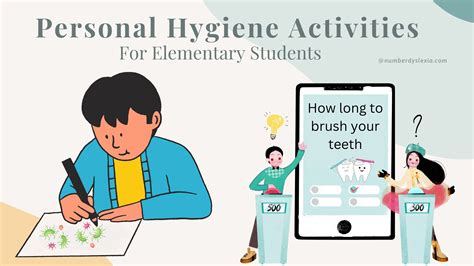Addressing Student Hygiene: A Compassionate Approach
Maintaining good hygiene is crucial for a student's health, well-being, and overall success in school. However, addressing hygiene concerns among students requires a compassionate and understanding approach. This article explores strategies for educators and parents to tackle this sensitive topic effectively, fostering a supportive environment where students feel comfortable and empowered to prioritize their hygiene.
Why is Student Hygiene Important?
Good hygiene practices are essential for preventing the spread of illnesses, improving self-esteem, and creating a positive learning environment. Poor hygiene can lead to increased absenteeism due to illness, difficulty concentrating in class, and social isolation. Addressing hygiene issues proactively contributes to a healthier and more productive school community. It's not just about cleanliness; it's about promoting overall well-being and creating a supportive environment where every student feels respected and valued.
What are Common Hygiene Challenges Faced by Students?
Several factors can contribute to hygiene challenges among students. These may include:
- Lack of access to resources: Students from low-income families may lack access to essential hygiene products like soap, shampoo, and clean clothing.
- Lack of education: Some students may simply lack the knowledge or understanding of proper hygiene practices.
- Learning disabilities or developmental delays: Students with certain disabilities may require additional support and individualized strategies to maintain good hygiene.
- Homelessness or instability: Students experiencing homelessness or unstable living situations often face significant barriers to maintaining personal hygiene.
- Mental health issues: Depression, anxiety, or other mental health concerns can significantly impact a student's ability to care for themselves.
How Can Educators Address Hygiene Concerns Compassionately?
Addressing student hygiene requires sensitivity, empathy, and a collaborative approach. Here's how educators can make a positive difference:
1. Providing Educational Resources:
- Hygiene lessons: Incorporate age-appropriate hygiene lessons into the curriculum. This could involve interactive activities, videos, and guest speakers.
- Visual aids: Create colorful posters and infographics illustrating proper handwashing techniques, teeth brushing, and other hygiene practices.
- Individualized support: Provide tailored support to students who need additional guidance, considering their individual needs and learning styles.
2. Creating a Supportive Environment:
- Non-judgmental approach: Avoid shaming or embarrassing students about their hygiene. Instead, focus on providing positive reinforcement and encouragement.
- Confidential conversations: Establish a confidential communication channel where students can discuss hygiene concerns without fear of judgment.
- Collaboration with parents/guardians: Work closely with parents/guardians to develop a consistent approach to hygiene at home and school.
3. Addressing Resource Needs:
- Hygiene kits: Provide hygiene kits containing essential items like soap, shampoo, toothbrush, and toothpaste to students in need. Many schools and community organizations offer programs to help supply these.
- Laundry facilities: If feasible, provide access to laundry facilities for students who lack access to clean clothing.
- Connecting with community resources: Collaborate with local organizations to provide resources and support to students facing challenges related to hygiene.
How Can Parents Help Their Children Maintain Good Hygiene?
Parents play a vital role in establishing good hygiene habits from an early age. Here's how they can contribute:
- Lead by example: Children often learn by observing their parents' behavior. Demonstrate good hygiene practices yourself.
- Make it fun: Turn hygiene routines into fun games or challenges to make them more engaging for children.
- Positive reinforcement: Praise and reward children for consistently practicing good hygiene habits.
- Age-appropriate explanations: Explain the importance of hygiene in a way that children can understand.
What if a Student's Hygiene is Severely Neglected?
In cases where a student's hygiene is severely neglected, educators and parents should collaborate to address the underlying issues. This may involve contacting social services, child protective services, or other relevant agencies. The safety and well-being of the child should always be the top priority.
Addressing the Social Stigma Around Hygiene
A significant barrier to addressing hygiene issues is the social stigma often associated with poor hygiene. It's crucial to foster an inclusive and supportive environment where students feel comfortable seeking help without fear of judgment or ridicule. Open communication, education, and empathy are key to breaking down these social barriers.
By adopting a compassionate and holistic approach, schools and families can work together to empower students to prioritize their hygiene, promoting their health, well-being, and overall success. Remember, addressing hygiene issues is not about assigning blame but about providing support and resources to enable every student to thrive.

